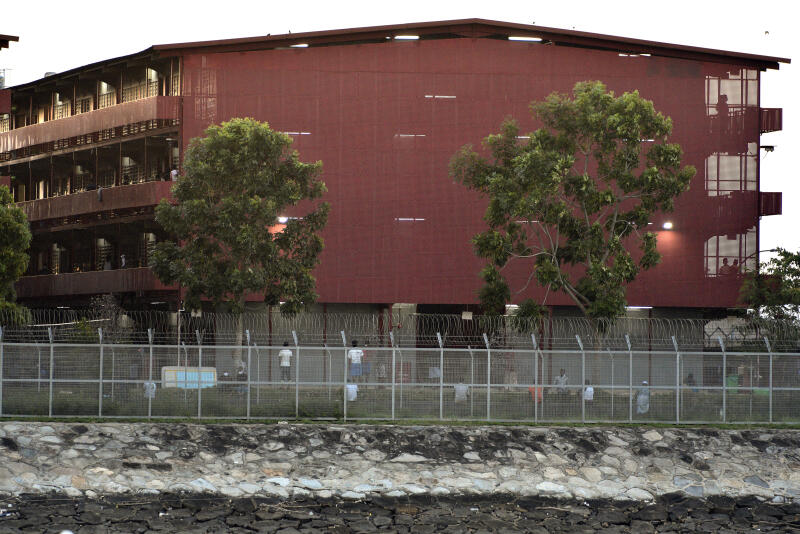Coronavirus pandemic
Outbreak in dorms may take a few weeks before it's under control
Sign up now: Get ST's newsletters delivered to your inbox

The S11 Dormitory at Seletar North Link.
ST PHOTO: DESMOND WEE
It may take a few weeks before infection numbers in foreign workers' dormitories become low enough to signal that the Covid-19 outbreak is under control in those quarters, said the Health Ministry's chief health scientist, Professor Tan Chorh Chuan.
The number of new infections should start to taper down when most of the infected cases are identified and taken out, he told The Straits Times' executive editor Sumiko Tan on ST's news talk show The Big Story yesterday.
But even after Singapore gets to that point, not all dormitories that have been put under quarantine will reopen at the same time, as some are more severely affected than others, said Prof Tan.
Instead, it will be a situation where workers who have been tested and found to be clear of the virus can return to work and to the community. They will be housed separately from those who might potentially be exposed or infected.
Subsequently, other dorms or parts of the dorms could gradually have their quarantine lifted once the authorities are confident that there is no more active transmission in the dorms, added Prof Tan.
"Within dorms that don't have very many cases, as we test the workers and clear them out, some dorms or some parts of the dorms could be reopened gradually," said Prof Tan.
Some workers who are in less affected dorms may also be able to return to work and return to the community earlier, if they have tested negative for the virus and if the authorities are confident that they are not infectious, he added.
But this will take a longer time in dormitories that are more affected, as the case load and transmission rate are higher.
"Testing will have to be done again for many of the residents in these dorms to ascertain their infection status," said Prof Tan. It should be safe for workers who have been exposed to the virus, but are no longer infectious, to return to work and to the community, he added.
A total of 38 out of 43 large purpose-built dormitories in Singapore now have Covid-19 clusters, while there are at least 20 smaller factory-converted dormitories with clusters.
The biggest cluster, S11 Dormitory in Punggol, has more than 2,400 cases. Other dormitories have clusters that range from fewer than 20 cases to around 900 cases.
Last month, Manpower Minister Josephine Teo said that all foreign workers currently living in dormitories have to stop moving in and out from April 21 until May 4, including going to work.
Dormitories with Covid-19 clusters were also placed under quarantine earlier last month.
For now, Singapore is still seeing "very large numbers" of Covid-19 cases because of active case finding, said Prof Tan.
For instance, a "very low threshold" is in place for doing swab diagnosis tests for people with respiratory symptoms. Systematic testing operations are also under way in some of the dorms.
"We are very actively trying to find cases so that we can isolate them so as to reduce the extent of spread. So we expect numbers to continue to rise because of active tracing."


